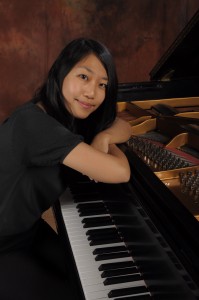 Last week the Centre for Music Studies at City University London was privileged to welcome to its guest lecture series Professor Kofi Agawu of Princeton University, who is presently in the UK for the 2012-13 academic year as the George Eastman Visiting Professorship in the Faculty of Music at Oxford University.
Last week the Centre for Music Studies at City University London was privileged to welcome to its guest lecture series Professor Kofi Agawu of Princeton University, who is presently in the UK for the 2012-13 academic year as the George Eastman Visiting Professorship in the Faculty of Music at Oxford University.
Department Chair Professor Stephen Cottrell introduced the speaker, quipping that the trope “so and so needs no introduction” rarely applies in the world of musicology, but that it is certainly the case for the eminent Dr. Agawu, whose accolades include a Guggenheim Fellowship (1990-91), the Royal Musical Association Dent Medal (1992), and the Howard T. Behrman Award from Princeton University (2011).
Agawu, who spoke on “The Minimalist Impulse in African Musical Creativity”, began by cautioning his listeners to the obvious insufficiency of a blanket term such as “minimalism” to describe multifarious practices and of the equally problematic term “African music” as a signifier of some unified concept. He then highlighted the differences between “Western ‘minimalism'” and African “minimalism” – questions of origins, intentionality, and context, as well as the similarities, for example, the “shared ethos of repudiating the values of complexity while embracing essences of musical material.”
He next posed the question of whether or not this concept of minimalism is present in African languages, concluding that “the verbal economy of African discourse is not loaded with minimalist terms,” which seemed to resonate with the opening of his recent work, Music as Discourse: Adventures in Romantic Music, which posited that “the nonverbal essence of music has proved resistant to facile domestication within a verbal economy.”
During his talk Professor Agawu presented several musical examples to explore this “minimalist impulse” – from a lithophone of the Kabiye in Togo, with its continuous pulse of tones that created an almost vertiginous effect and the illusion of multiple players striking surfaces in orchestrated consort, to a single, resonant leaf played by a child in Angola, whose barren, emergent acoustic reminded the speaker of soundscapes achieved in the minimalist work of John Cage.
An in-depth analysis of a trumpet solo from a Borborbor performance (Ghana) served to highlight Agawu’s point of “inter-domain compensation” that characterizes much of West-African minimalist music: minimality in one domain is compensated for by “non-minimality” in another. In this case, a limited palette of tones, a triadic fanfare, is compensated for by rhythmic complexity, which is in turn heightened by an essential aspect of African music, that is, communality – especially realized through dance. The relative “emptiness” created by African minimalist impulses is actually a strategic invitation to dance, an invocation of this communality so inherent in African music, according to Agawu.
His juxtaposition of African minimalist music-making with the structured forms of, particularly, Western European music of the Classical and Romantic periods, struck a chord with me, especially against the historical backdrop of Western writers discarding African music as “too boring” or “going nowhere”.
In my field of study, Medieval Byzantine chant, Western musicologists of the first half of the century were all too quick to dismiss an enormous body of repertory – the most melismatic kind (some of it, ironically, the most “planned” and “work”-oriented) as a morass of Oriental decadence unworthy of inclusion among the more “structured”, “logical” chants of the central repertory. Like musicologists of Medieval Byzantine chant who uncovered meaning and sophistication by analyzing this music on its own terms, Agawu points his listeners away from teleological narratives of beginning-middle-end, calling attention to the “underlying groove”, “non-negotiable presence”, and “entangled temporalities” – the virtuous attributes of African minimalism.
Dr. Laudan Nooshin, Senior Lecturer and Director of Music Research Degrees in City’s Centre for Music Studies, said: “Professor Agawu is one of the most internationally renowned musicologists and has been at the forefont of new developments in musicological thinking since the early 1980s. ‘Of particular significance has been his work on musical semiotics, and the important role he has played in the emergence of a postcolonial consciousness within musicology. His work spans both ethnomusicology and musicology, with writings on such diverse topics as West African music and Mahler. We were delighted that he was able to find the time to come and present a talk at City.”
The lecture concluded with a spirited question and answer session and a well-attended reception.
— Spyridon Antonopoulos









 Soon to be published by Ashgate ‘Christian Congregational Music: Performance, Identity and Experience’, is co-edited by former PhD student Carolyn Landau. The volume explores the role of congregational music in Christian religious experience, examining how musicians and worshippers perform, identify with and experience belief through musical praxis. It features a chapter by current City doctoral student Mark Porter entitled ‘Moving between musical worlds: worship music, significance and ethics in the lives of contemporary worshippers.’ The volume is due to be published in July.
Soon to be published by Ashgate ‘Christian Congregational Music: Performance, Identity and Experience’, is co-edited by former PhD student Carolyn Landau. The volume explores the role of congregational music in Christian religious experience, examining how musicians and worshippers perform, identify with and experience belief through musical praxis. It features a chapter by current City doctoral student Mark Porter entitled ‘Moving between musical worlds: worship music, significance and ethics in the lives of contemporary worshippers.’ The volume is due to be published in July.